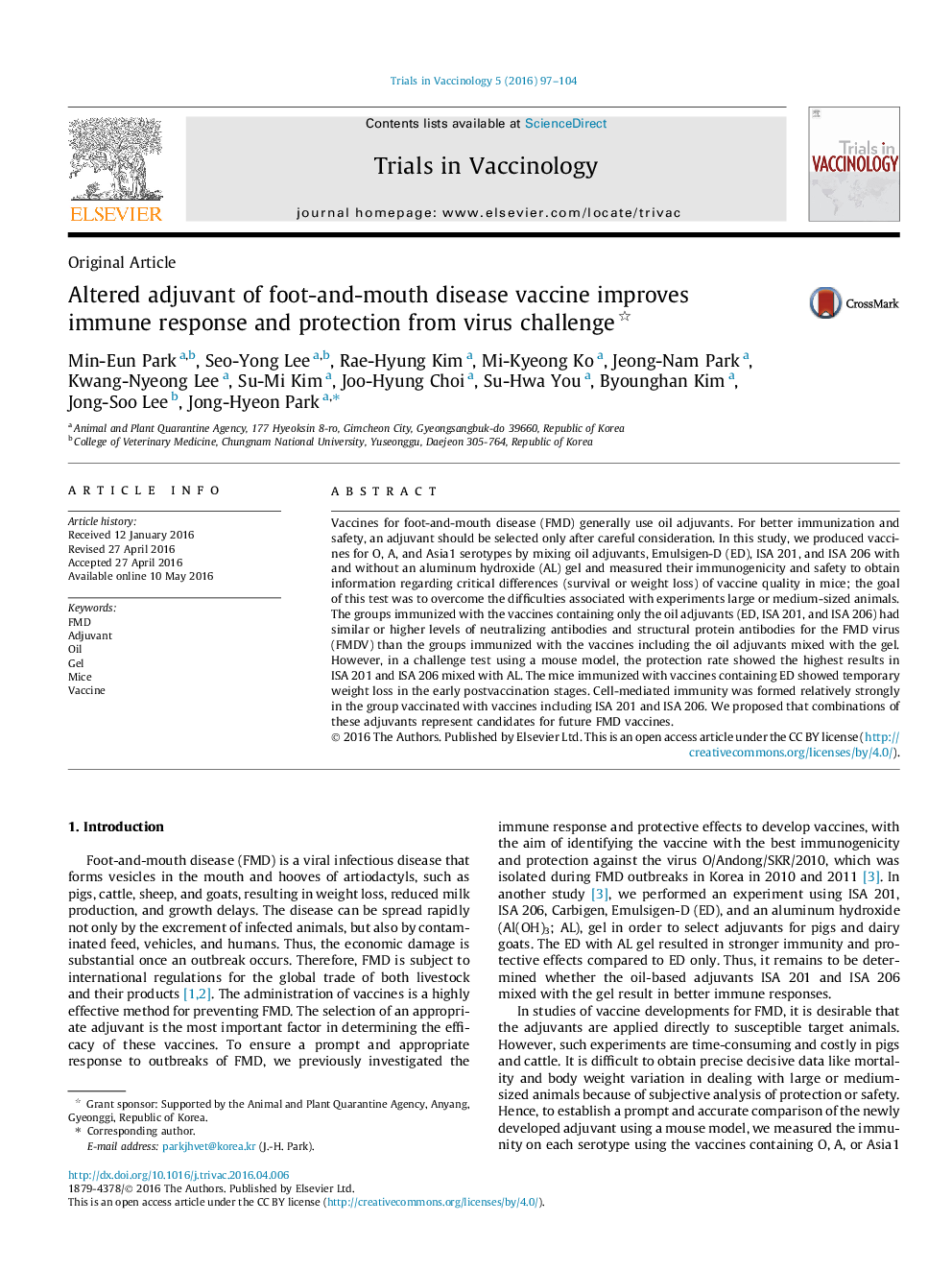| Article ID | Journal | Published Year | Pages | File Type |
|---|---|---|---|---|
| 2474345 | Trials in Vaccinology | 2016 | 8 Pages |
•Oil-based adjuvants, or their combination with gel, resulted in different immune response in mice.•The protection in the mice immunized with oil and gel was improved in short to long-term.•ISA201 + AL showed lower humoral immunity than ISA201, but the protectivity was enhanced.
Vaccines for foot-and-mouth disease (FMD) generally use oil adjuvants. For better immunization and safety, an adjuvant should be selected only after careful consideration. In this study, we produced vaccines for O, A, and Asia1 serotypes by mixing oil adjuvants, Emulsigen-D (ED), ISA 201, and ISA 206 with and without an aluminum hydroxide (AL) gel and measured their immunogenicity and safety to obtain information regarding critical differences (survival or weight loss) of vaccine quality in mice; the goal of this test was to overcome the difficulties associated with experiments large or medium-sized animals. The groups immunized with the vaccines containing only the oil adjuvants (ED, ISA 201, and ISA 206) had similar or higher levels of neutralizing antibodies and structural protein antibodies for the FMD virus (FMDV) than the groups immunized with the vaccines including the oil adjuvants mixed with the gel. However, in a challenge test using a mouse model, the protection rate showed the highest results in ISA 201 and ISA 206 mixed with AL. The mice immunized with vaccines containing ED showed temporary weight loss in the early postvaccination stages. Cell-mediated immunity was formed relatively strongly in the group vaccinated with vaccines including ISA 201 and ISA 206. We proposed that combinations of these adjuvants represent candidates for future FMD vaccines.
